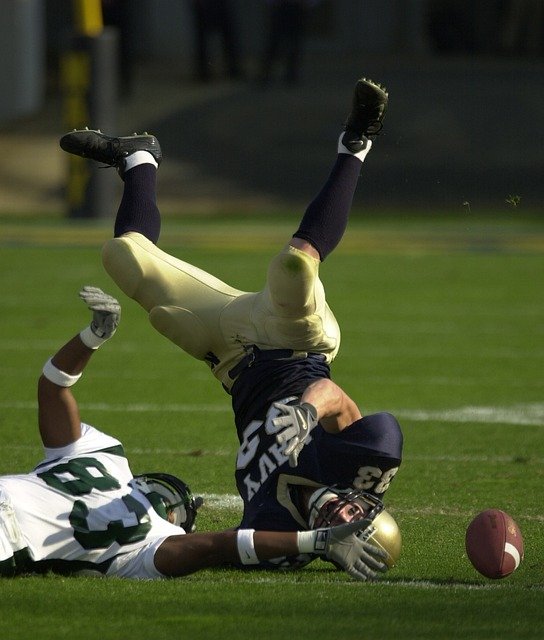How Do Concussions Impact Mental Health?
If you’ve ever sustained a concussion, you know that this type of injury is physically painful. A concussion that goes untreated can have long-term, negative implications for your mental health.
Many people are not aware of the different situations in which someone can sustain a concussion. It’s easy to assume that hitting your head while playing sports is the only way that you could be susceptible to a concussion. But any injury in which your brain bounces back and forth in your skull constitutes a concussion. This can happen, for example, if you were in a vehicle that suddenly slowed down or if you are rear-ended. Oftentimes, falls can cause concussion even if you don’t hit your head directly, but can occur from the impact at your tailbone, for instance. Many people also hit their head at home or work by misjudging or not seeing an obstacle when they are bent over and suddenly stand up. Of course any type of physical assault, especially to the head or face, can result in a mild brain injury.
It’s important to understand exactly how a concussion could affect your mental health so that you can spot the warning signs early on. Here’s how a concussion could make an impact on your mental health.
Irritability And Anger
After sustaining a concussion, you may feel exceptionally irritable and angry. At first, you might assume that you’re just feeling a bit “off” because your head physically hurts - but the irritability that accompanies a concussion can go deeper than that. You might feel angry and frustrated because of the way the concussion has affected your brain, or how it happened. If you’re struggling with anger management after a concussion, it may be important to check in with your doctor or a health professional who can help to treat the underlying cause. Craniosacral therapists help to release specific physical restrictions in your cranium, which will calm your whole nervous system.
Anxiety And Panic Attacks
Sometimes, a concussion can bring on strong feelings of anxiety or depression. You may feel like you’re always on edge, and you’re hyper-vigilant everywhere you go. Even when you’re in a safe situation, you worry about something bad happening, and you’ve been exceptionally jumpy and easily startled. You might be paranoid, and find it difficult to relax. It is common to feel depressed, especially if you have to avoid your usual activities and people, in order to rest or because you can’t tolerate light or noise.
Trouble With Emotional Regulation
One moment, you’re feeling fine - but when you encounter a minor inconvenience, your good mood is instantly disrupted. In the past, you might have been able to stay calm when things went wrong. Now, it feels like you’re not in control of your own emotions. It might seem like you’re at the mercy of your own feelings, and it’s causing you to lash out at people you care about. This can be a concussion symptom.
Overwhelmed By Responsibilities
You used to balance your usual responsibilities with ease. Between work or school, spending time with friends, running household errands, and caring for your family, you were able to juggle lots of different obligations. But after your concussion, you might feel completely overwhelmed by the challenges of everyday life. You might be forgetting appointments or simple details. Tasks that you used to tackle without thinking twice are suddenly difficult. You might find that you’re simply not able to complete your to-do list and get everything done. You may feel bad about letting your loved ones down, but you don’t have the energy or focus to be productive and organized.
Physical Symptoms Harming Emotional Wellbeing
Finally, if you’ve had a concussion, you’re likely dealing with a high degree of physical pain. You might have splitting headaches and sensitivity to light and loud noises. Furthermore, if you had a severe injury or were involved in an accident, you may have sustained other injuries, too. Any concussion will almost always involve a neck and/or back injury because of how your head and neck are connected. When your body is in pain, it’s not easy to relax and stay positive. If you haven’t felt like yourself since getting a concussion, it doesn’t necessarily mean you’re not healing - but your body may still be in a lot of pain since your injury, which brings down your mood.
—
Are you concerned that a concussion has negatively affected your mental as well as physical health? Working with a craniosacral/somatic therapist can help. Reach out to discuss your options for scheduling your first session for concussion therapy.



